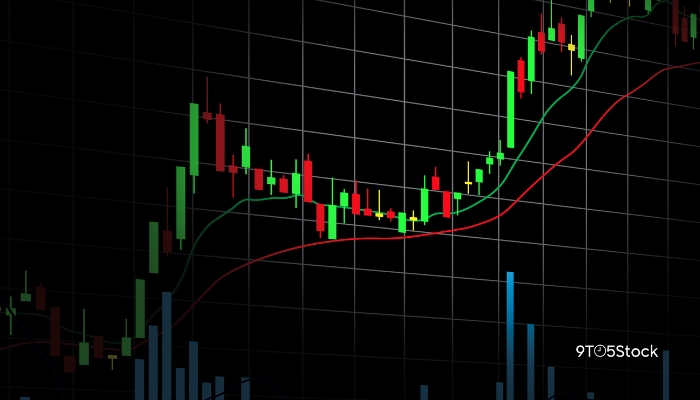Investing in foreign stock markets can offer numerous advantages, from diversifying your portfolio to accessing new growth opportunities. However, navigating these markets requires careful consideration and understanding. In this guide, we’ll walk you through everything you need to know about investing in foreign stocks, from the benefits to the strategies and risks involved.
Introduction to Investing in Foreign Stock Markets

What are foreign stock markets?
Foreign stock markets are financial exchanges outside of your home country where shares of publicly traded companies are bought and sold. These markets operate similarly to domestic exchanges but involve companies based in other countries.
Why invest in foreign stocks?
Investing in foreign stocks provides diversification, allowing you to spread your investment risk across different economies and industries. Additionally, it offers exposure to sectors and companies that may not be available in your home market, potentially leading to higher returns.
Benefits of Investing in Foreign Stock Markets

Diversification of portfolio
Diversifying your portfolio across various geographic regions can help lower your overall investment risk. When one market experiences a downturn, investments in other regions may still perform well, mitigating losses.
Access to different industries and sectors
Foreign stock markets offer exposure to a wide range of industries and sectors, such as technology, healthcare, and energy. By investing globally, you can capitalize on growth opportunities in sectors that may be underrepresented in your home market.
Understanding Foreign Exchange (Forex)

What is Forex?
Forex, or foreign exchange, refers to the global marketplace for trading currencies. Understanding Forex is essential for investing in foreign stocks, as changes in currency exchange rates can impact your investment returns.
Importance of currency exchange rates
Currency exchange rates determine the value of your investments when translated back into your home currency. Fluctuations in exchange rates can either amplify or mitigate investment gains or losses.
Researching Foreign Markets

Economic indicators
Before investing in foreign stocks, it’s crucial to analyze economic indicators of the countries you’re considering. This includes factors such as GDP growth, inflation rates, and unemployment statistics, which can provide insights into the overall health of the economy.
Political stability
Political stability is another important consideration when researching foreign markets. Investments in countries with stable governments and favorable regulatory environments tend to be less risky than those in politically volatile regions.
Selecting Foreign Stocks

Blue-chip vs. growth stocks
When selecting foreign stocks, investors often choose between blue-chip companies with established track records and growth stocks with higher potential for capital appreciation but greater risk.
Evaluating financial health
Evaluating the financial health of foreign companies involves analyzing metrics such as revenue growth, profit margins, and debt levels. Tools like financial statements and analyst reports can aid in this assessment.
Investing Made Easy: Top Stock Market Apps for Beginners in 2024
Managing Risks in Foreign Stock Markets

Currency risk
Currency risk, or exchange rate risk, arises from fluctuations in currency values. To manage this risk, investors can use hedging strategies or diversify their holdings across multiple currencies.
Political and regulatory risks
Investing in foreign markets exposes investors to political and regulatory risks, such as changes in government policies or regulations that may impact business operations or profitability.
How to Invest in Foreign Stock Markets

Direct investment
One approach to investing in foreign stocks is through direct investment, where investors purchase shares of individual companies listed on foreign exchanges.
Mutual funds and ETFs
Mutual funds and exchange-traded funds (ETFs) offer diversified exposure to foreign markets through a single investment vehicle. These funds may focus on specific regions, industries, or investment strategies.
Tax Implications of Investing in Foreign Stocks

Double taxation
Investors in foreign stocks may be subject to double taxation, where they pay taxes on both dividends received from foreign companies and capital gains realized upon selling their investments.
Tax treaties
Many countries have tax treaties in place to prevent double taxation and provide relief for foreign investors. Understanding these treaties can help minimize tax liabilities.
Must Read: Sneaky Stock Market Scams You Need to Know About and How to Dodge Them (2024)
Monitoring and Reviewing Investments

Regular portfolio assessment
To ensure the continued success of your foreign investments, it’s essential to regularly review your portfolio and make adjustments as needed based on changing market conditions and investment goals.
Staying informed about market developments
Staying informed about global market developments, economic trends, and geopolitical events can help investors anticipate potential risks and opportunities in foreign markets.
Common Mistakes to Avoid

Neglecting research
One common mistake investors make is neglecting thorough research before investing in foreign stocks. Failing to understand the risks and opportunities can lead to poor investment decisions.
Overlooking currency risks
Underestimating the impact of currency risks on investment returns is another mistake to avoid. Ignoring exchange rate fluctuations can result in unexpected losses or reduced returns, even if the underlying stock performs well.
Focusing solely on returns
Focusing solely on returns without considering the associated risks is a pitfall for many investors. While high returns are desirable, it’s essential to assess the risk-reward ratio of foreign investments and maintain a balanced approach.
Resources for Investing in Foreign Stocks

Online brokerage platforms
Online brokerage platforms offer access to a wide range of foreign markets, allowing investors to buy and sell stocks from around the world with ease. These platforms often provide research tools, market analysis, and educational resources to help users make informed investment decisions.
Financial news websites
Financial news websites and publications are valuable sources of information for investors interested in foreign stocks. These platforms offer insights into market trends, economic developments, and company news that can inform investment strategies.
Investment forums and communities
Joining investment forums and communities can provide opportunities to learn from other investors’ experiences and exchange ideas about foreign stock investing. Engaging with like-minded individuals can offer valuable perspectives and help broaden your understanding of global markets.
Case Studies: Successful Foreign Stock Investments

Examples of profitable investments
Case studies highlighting successful foreign stock investments can provide valuable lessons for investors. Analyzing the factors that contributed to these successes can inform your own investment strategies and decision-making processes.
Lessons learned from success stories
By examining the strategies and approaches of successful investors, you can gain insights into effective methods for navigating foreign stock markets. Learning from others’ experiences can help you avoid common pitfalls and enhance your chances of success.
Aslo Read:
- Top 10 Stock Market ETFs That Are Reshaping Investment Strategies
- Top Strategies for Successful Stock Market Investment
- Top 5 Green Energy Stocks That Will Power Your Portfolio to Success!
FAQs About Investing in Foreign Stock Markets
How much should I allocate to foreign stocks?
The allocation to foreign stocks depends on your investment goals, risk tolerance, and overall portfolio strategy. Financial advisors often recommend diversifying across different asset classes, including international equities, to reduce risk and maximize returns.
Can I invest in foreign stocks through my retirement account?
Yes, many retirement accounts offer options for investing in foreign stocks, such as international mutual funds or ETFs. Consult with your plan administrator or financial advisor to explore the available investment choices within your retirement account.
Are there any restrictions on investing in certain countries’ markets?
Some countries may impose restrictions or regulations on foreign investors participating in their stock markets. These restrictions can vary widely depending on the country and may include limits on foreign ownership or specific approval requirements for non-resident investors.
What are the costs associated with investing in foreign stocks?
Investing in foreign stocks may involve additional costs such as currency conversion fees, foreign transaction fees, and taxes. It’s essential to consider these expenses when evaluating the overall return potential of your investments.
How often should I review my foreign stock investments?
Regular review of your foreign stock investments is recommended to ensure alignment with your financial goals and risk tolerance. Factors such as market conditions, economic developments, and changes in company fundamentals may warrant adjustments to your investment strategy.
Conclusion
Investing in foreign stock markets offers opportunities for diversification, growth, and exposure to new industries and sectors. By understanding the benefits, risks, and strategies involved, investors can navigate global markets with confidence and build a robust portfolio that withstands market fluctuations and achieves long-term financial goals.
Explore the world of foreign stocks cautiously, conduct thorough research, and leverage available resources to make informed investment decisions that align with your objectives and risk appetite.
Disclaimer: The information provided in this article is for educational and informational purposes only. It should not be construed as financial or investment advice. Investing in foreign stock markets carries inherent risks, including but not limited to currency fluctuations, geopolitical events, and regulatory changes. Before making any investment decisions, readers are strongly advised to conduct their own research and consult with a qualified financial advisor. The author and publisher of this article disclaim any liability for any loss or damage caused by reliance on the information provided herein.
Hello guys! My name is David Wilson, and I'm a passionate stock market enthusiast and the founder of 9to5Stock. With a deep understanding of market dynamics and a commitment to empowering others, I share valuable insights, strategies, and updates to help investors like you make informed decisions and achieve financial success. Welcome to our community, and let's thrive together in the world of investing!
